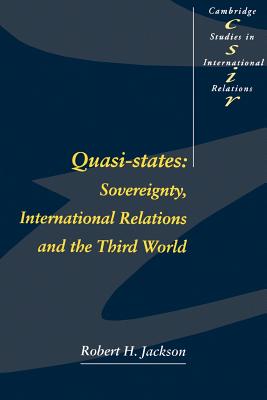Robert Jackson examines the birth and survival of Third World nations since the end of the Second World War. He describes these countries as "quasi-states," arguing that they exist more by the support and indulgence of the international community than by the abilities and efforts of their own governments and peoples. He investigates the international normative framework that upholds sovereign statehood in the Third World. This he calls "negative sovereignty" and contrasts it with what he sees as the "positive sovereignty" that emerged in Europe along with the modern state. Within this structure, he examines how negative sovereignty arose, and its mechanisms and consequences for both international politics and the domestic conditions of quasi-states. He concludes by assessing the future of quasi-states and the institution of negative sovereignty.
| FindBook |
有 1 項符合
Quasi-States: Sovereignty, International Relations, and the Third World的圖書 |
 |
Quasi-States: Sovereignty, International Relations, and the Third World 作者:Jackson 出版社:Cambridge University Press 出版日期:1993-03-26 語言:英文 規格:平裝 / 240頁 / 22.6 x 15.2 x 1.8 cm / 普通級 |
| 圖書館借閱 |
| 國家圖書館 | 全國圖書書目資訊網 | 國立公共資訊圖書館 | 電子書服務平台 | MetaCat 跨館整合查詢 |
| 臺北市立圖書館 | 新北市立圖書館 | 基隆市公共圖書館 | 桃園市立圖書館 | 新竹縣公共圖書館 |
| 苗栗縣立圖書館 | 臺中市立圖書館 | 彰化縣公共圖書館 | 南投縣文化局 | 雲林縣公共圖書館 |
| 嘉義縣圖書館 | 臺南市立圖書館 | 高雄市立圖書館 | 屏東縣公共圖書館 | 宜蘭縣公共圖書館 |
| 花蓮縣文化局 | 臺東縣文化處 |
|
|
圖書介紹 - 資料來源:博客來 評分:
圖書名稱:Quasi-States: Sovereignty, International Relations, and the Third World
|









